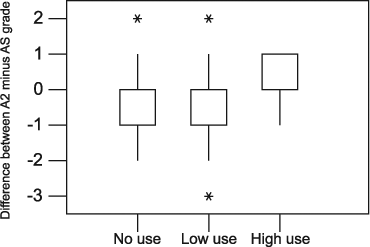Gave a keynote at the National Trainers Conference around new tools on the web for training (Beyond Blended Learning). The web is giving us e-learning tools and content formats that we never dreamt of just a few years ago. Here’s a few off the top of my head:
Blogs – senior exec blogs, expert blogs, trainer blogs, learner blogs – takes minutes and reinforces learning.
Vlogs – track your team training exercise with a video log – will crystallise and reinforce learning.
Wikis – twiki’s a good start for a company knowedge-base or for a project or team.
Blikis – combine a blog and wiki for projects that need both knowledge gathering and dynamic reporting.
Podcasts – audio learning gets round literacy and dyslexia – everyone can listen, many don’t like to read – MP3 palyers are cheaper than lunch.
Videocasts – don’t worry too much about quality – interviews, talks, discussions - make them short and get them distributed.
Syndication – syndicate gets the right stuff to the right people at the right time – efficient distribution.
Messenger – step above email and, with a webcam, gives you most of the functionality of a virtual classroom.
Webcams – want to see the instructor/learner – cheap and works a treat.
MMOGs – get a life in Second Life and do some avatar-based learning – there’s lots of classes online – weird and wonderful.
Digital photography - so easy to take photographs and get them into training materials, get every new employee to take a picture of themselves and various locations and people as part of their induction.
Google Sketch – build 3D images – easy as pie.
Google Earth – will blow your mind – try it then use it to find international locations of your company – or mash-up some training applications.
Amazon – give everyone a budget and a booklist – follow up with book club meetings.
Wikipedia – fantastic knowledge base with discussions, links and lots of other wiki sources such as Wikiquotes, Wikispecies, Wiktionary and so on. Use it, link to it, do print outs.
Youtube – search for education and training video clips – growing like topsy.
Basecamp – free community project management software that can be used for team-based project management training.
Moodle – free open source LMS, very popular and now adopted by some serious organisations.
This is real learning, knowledge management, creation and distribution and it’s mostly free!
THE MESS IS THE MESSAGE
 Dozens of definitions of blended learning are floating around, most of them muddle-headed. Here's a collection from the excellent Handbook of Blended Learning , a collection of 39 papers edited by Curtis Bonk.
Dozens of definitions of blended learning are floating around, most of them muddle-headed. Here's a collection from the excellent Handbook of Blended Learning , a collection of 39 papers edited by Curtis Bonk.








